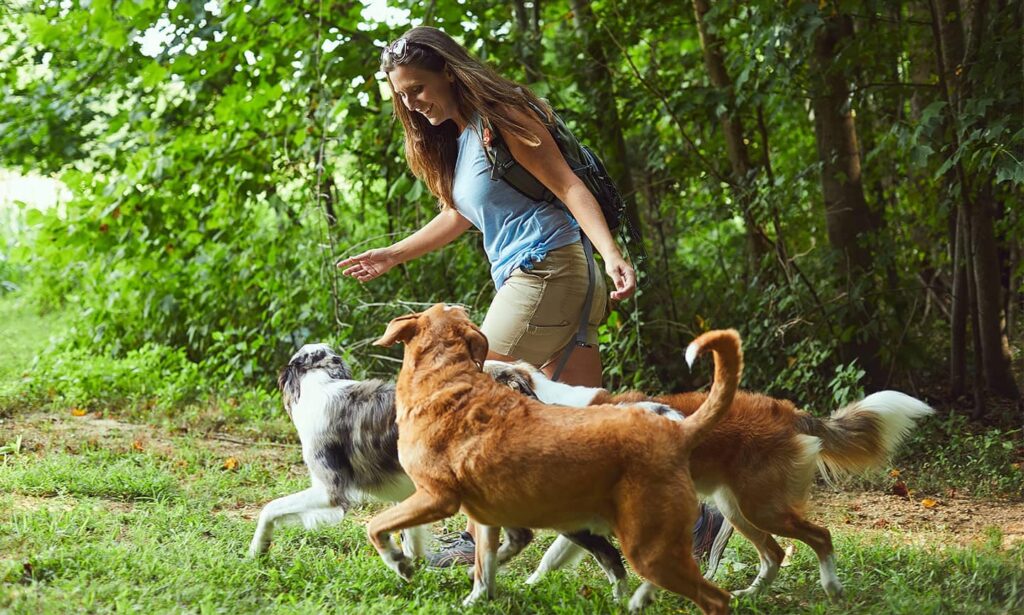Dog Reactivity Towards Toys: Understanding the Behavior
Share
Understanding dog reactivity towards toys can be a challenging yet rewarding experience for health-conscious pet owners. This behavior is not uncommon, and with careful observation and strategies, your canine companion can enjoy playtime without stress or over-excitement.
Dog reactivity usually refers to an exaggerated or intense response to a certain stimulus. In this case, our main topic of concern is the dog's reaction towards toys. This form of reactivity can manifest in various ways, from over-excitement to fear or aggression, and understanding these reactions is key to addressing them.

What Causes Dog Reactivity Towards Toys?
The causes of reactivity in dogs can be attributed to several factors, ranging from lack of proper socialization to a dog's inherent temperament. Dogs can become overly attached to toys or become stressed due to changes in the environment or routine. Sometimes, reactivity might be a display of territorial behavior, especially if the dog perceives the toy as a significant possession.
It's crucial to observe your dog's behavior closely to identify the specific type of reactiveness it exhibits. This understanding will direct you on the best path to managing or mitigating the behavior. As noted in a related post on dog reactivity towards other animals, similar approaches can often apply across different stimuli.
Signs of Reactivity in Dogs
Recognizing the signs of dog reactivity towards toys is the first step in addressing the issue. Signs can include excessive barking, growling, or even lunging when toys are present. Some dogs may exhibit stiff body language or become fixated on the toy, often reluctant to relinquish it.
The key to managing these reactions starts with identifying these signs early and understanding the triggers that cause them. Consulting resources like expert dog training tips on BrilliantPad can provide additional insights into managing these behaviors effectively.
Health Implications of Toy Reactivity
For health-conscious pet owners, the physical and mental well-being of their pets is paramount. Reactivity can lead to stress and anxiety both for the dog and the owner, which might, if unchecked, escalate to more severe issues such as heightened aggression or anxiety disorders. Therefore, addressing this reactivity is essential not only for the dog's mental stability but also for maintaining a peaceful household environment.
Managing reactivity towards leashes often shares strategies useful in addressing toy-related issues, highlighting the interconnectedness of various dog behaviors and their management methodologies.
Addressing and Managing Reactivity
When managing dog reactivity towards toys, a multi-faceted approach is often necessary. Begin by modifying the environment to reduce reactive triggers. Introduce toys gradually, ensuring that they are appropriate for your dog's size and strength.
Positive reinforcement is a highly recommended tool. Rewarding your dog with treats or praise when it displays calm behavior around toys can enforce positive behavior. In addition, seeking advice from professional dog trainers or participating in dog training programs can be beneficial. Learn more about such approaches in this comprehensive CIA training guide.
Conclusion
Ultimately, understanding and managing dog reactivity towards toys involves patience and persistent training. By observing your pet's behavior and implementing consistent management strategies, health-conscious pet owners can create a supportive environment where their furry friends can thrive.
For more insights on dog behaviors, explore topics on food-related reactivity issues that might illuminate further behavioral patterns.

FAQ
- What can trigger toy reactivity in dogs? Reactivity can be triggered by stress, lack of socialization, or the possessive nature of the dog towards the toy.
- How can I reduce my dog's reactivity towards toys? Reducing triggers, employing positive reinforcement, and possibly seeking professional training can effectively manage this behavior.
- Are certain dog breeds more prone to reactivity? Some breeds may be more predisposed to reactive behaviors due to their temperament, but it largely depends on the individual dog's experiences and training.
This article contains affiliate links. We may earn a commission at no extra cost to you.
